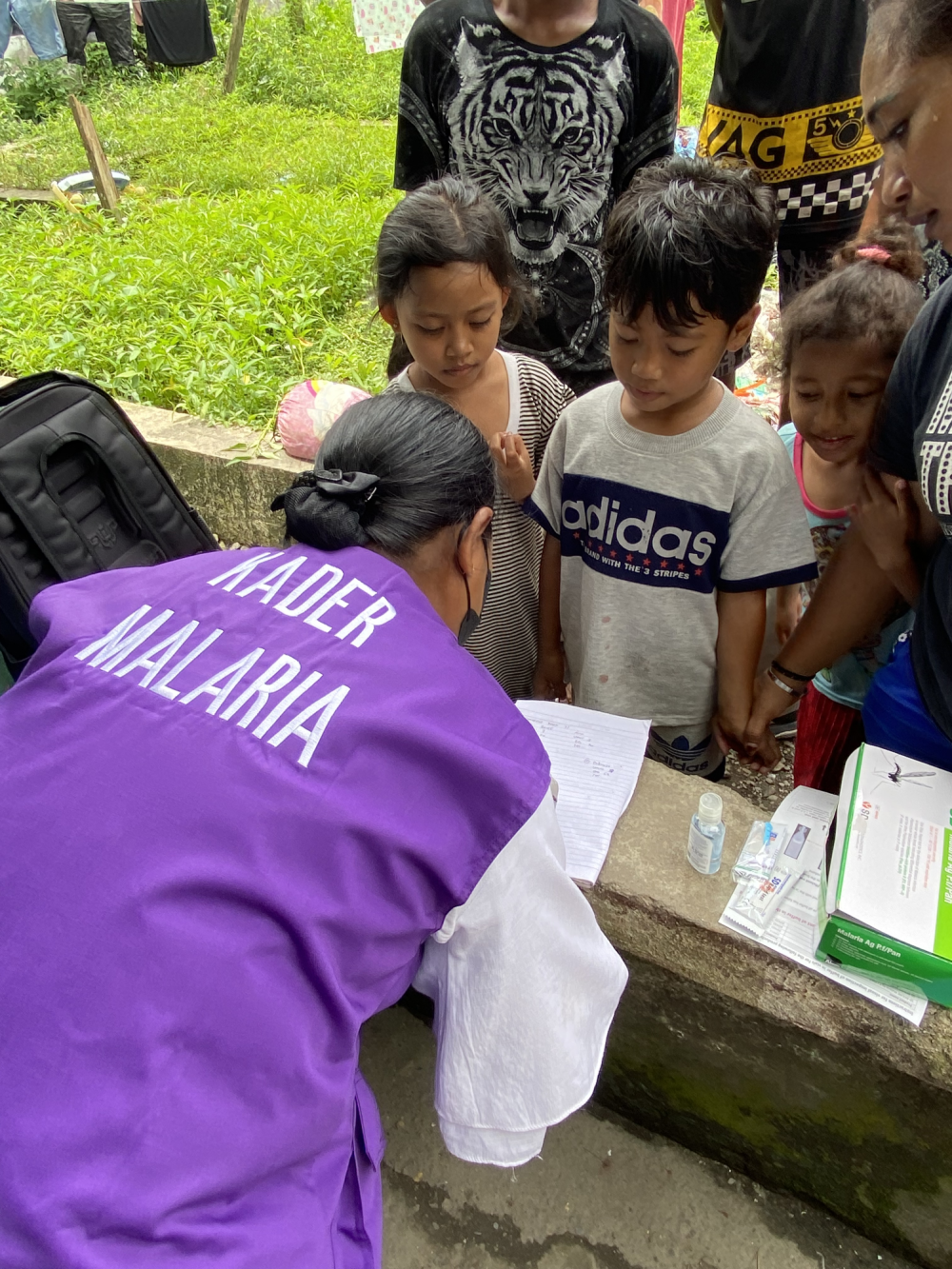As of December 2022, 372 out of 514 districts (72.4%) in Indonesia were certified malaria-free. But in east Indonesia, many districts and cities remain highly endemic, contributing up more than 90% of the reported malaria cases.
To meet the malaria programme’s objectives, substantial adjustments and strengthening measures are required. To inform these adjustments, a comprehensive review was carried out to examine programme performance, identify root problems, and provide recommendations for improvement.
The Government of Indonesia along with WHO, UNICEF, and other partners reviewed the malaria programme from 13-27 September 2022. The review was carried out at national level, in five districts and one city: Labuhanbatu District in North Sumatra, Penajem Paser Utara District in East Kalimantan, Kupang City and Kupang District in NTT, Manokwari District in West Papua, and Mimika District in Central Papua.
The MTR used assessment tools adapted from the WHO Malaria Elimination Assessment Tools (MEAT) and WHO practical manual for malaria programme review (MPR) and malaria strategic plan MTR, focusing on five assessment areas: programme management, case management, surveillance and evaluation, vector control, and behavioural change communication. The MTR team performed a desk review, visited province and district health offices, primary health care centres, district and military hospitals, private health facilities, village malaria workers and relevant departments from other sectors.
The review team consisted of WHO experts; officers from US CDC Atlanta, UNICEF, Ministry of Health, Ministry of Law and Human Rights; and expert practitioners from professional organizations and academic institutions. Representatives of the Global Fund to Fight AIDS, TB and Malaria (GFATM) and the Asia Pacific Leaders Malaria Alliance (APLMA) observed the review.
Results of the review were conveyed to the Minister of Health, Budi Gunadi Sadikin; the Director of Health and Community Nutrition of the National Development Planning Agency (BAPPENAS), Dr Pungkas Bahjuri Ali, and other stakeholders.
“To achieve malaria elimination in Papua and the new capital of Indonesia, multisectoral collaboration is one of the key components. We can learn from our strong multisectoral collaboration in responding to the COVID-19 pandemic to achieve malaria elimination and ensure the fulfilment of basic rights in the health sector,” said Minister Budi Gunadi Sadikin.
One of the key recommendations is refocusing strategies to accelerate the reduction of malaria burden and transmission in Papua. The programme needs to ensure high coverage of basic core interventions of malaria control, such as early diagnosis and treatment as well as prevention using long-lasting insecticidal net and indoor residual spraying. More intensive mass drug administration at high endemic villages is also crucial. This should be accompanied by strengthened public-private partnership and networking on case management and reporting through the malaria information system (SISMAL), and community-based case finding through village malaria workers (VMWs) at every village.

Accelerating malaria elimination through better, faster and wider coverage of intervention at persistent centres of activity such as the new capital city (Ibu Kota Negara/IKN) and its surrounding districts was also included in the MTR key recommendations. The forest that will be cleared for IKN is the habitat of Anopheles mosquitoes, transmitters of malaria. Massive construction projects with mobilized labour from other districts, combined with the active malaria transmission in areas surrounding IKN, will increase the risk of malaria outbreaks.
Meanwhile, sustained funding is a challenge for all districts in Indonesia, especially for low endemic to elimination areas. Learning from anti-stunting initiative that can access 13 different ministerial lines funding sources, MTR team recommended the National Malaria Control Programme (NMCP) to work closely with the National Development Planning Agency (BAPPENAS), the Ministry of Home Affairs, and the Health Offices Association (ADINKES) to formulate the regulation and educate district health offices (DHOs) on how to leverage these various sources of funding.
The findings and recommendations of MTR were adapted in the amendment process of the 2020-2024 National Action Plan for the Acceleration of Malaria Elimination (NAP-AMEI) document and in the development of the NMCP’s bridgingplan for 2025-2026.
More interventions are now in the pipeline for Papua and IKN. In Papua, the additions are mass drug administration (MDA), intermittent preventive treatment for pregnant women, strengthening of community-led monitoring and leadership, and larva source management. In IKN, there will be screenings for workers going to and coming from the new capital city, targeted drug administration, and biweekly fever screenings. Mobile and migrant population living around the IKN will also receive intermittent preventive treatment as well as mosquito nets and repellents.
All these efforts will further pave the way to malaria elimination in Indonesia. By the end of 2022, 372 districts have eliminated malaria. 13 more districts are targeted to eliminate malaria in 2023, which means 385 districts or almost 75% of Indonesia’s 514 districts will be malaria-free.
WHO Indonesia’s malaria programme is supported by the Global Fund.
Written by Ajib Diptyanusa, National Consultant for Malaria, and Dr Herdiana Hasan Basri, National Professional Officer for Malaria
